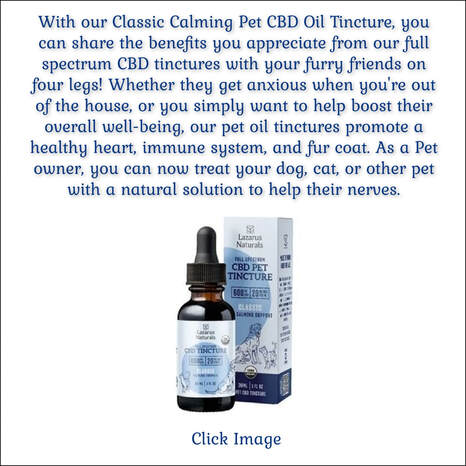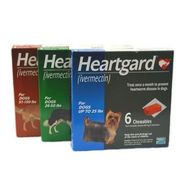The treatment using Heartgard and Doxycycline is STILL used with chemicals. To use ALL NATURAL and safe products, scroll to very bottom for all natural treatments and prevention choices.
(Click on images to go to product for ordering)
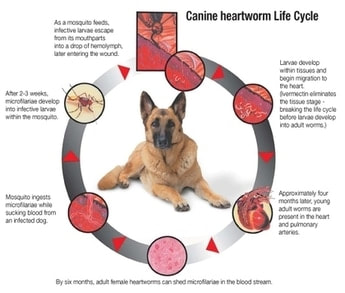
It is important to understand that heartworm infections are not detectable until about six months after a dog has been bitten by a heartworm-infected mosquito. (This is why it's not possible to have a heartworm test performed monthly and give the preventative only if an infection is found.) Blood tests generally will not detect heartworms in a dog until the larvae have matured into adult worms, which takes about six months following initial infection. Symptoms, such as coughing, lethargy and difficulty breathing, will not show up until the infection is advanced. Coughing will be your first symptom in the earlier stages.
Once heartworm infection has been confirmed, additional tests should be done to try to determine how extensive the infestation is. Radiographs can reveal inflammation and damage to the arteries and the heart, and blood tests will show whether the liver and kidneys have been affected.
Once heartworm infection has been confirmed, additional tests should be done to try to determine how extensive the infestation is. Radiographs can reveal inflammation and damage to the arteries and the heart, and blood tests will show whether the liver and kidneys have been affected.
Heartworm infection is divided into four or five stages (depending on the model used), based on the severity of the infestation and the age and health of the dog.
Stage 1 (mild) consists of young, healthy dogs with no symptoms and minimal changes evident on X-rays.
Moderate (stage 2) infection will show heartworm disease that is evident on X-rays, but symptoms are minimal, mostly coughing. Stage 3 is a severe infection, with weight loss, coughing, difficulty breathing, more damage visible on X-rays, along with liver and/or kidney damage.
Stage 4 and 5 are considered critical, with the dog often collapsing in shock. These dogs will not survive ordinary heartworm treatment, and must have the worms surgically removed if they are to have any hope of survival.
If you elect to use the slow-kill method (no Immiticide), then I recommend giving normal doses of Heartgard Plus (ivermectin) monthly along with pulsed doxycycline. Some studies show that you can give Heartgard every 15 days for 6 months.
(Note that a dog may test positive for up to six months after the worms are all gone).
Stage 1 (mild) consists of young, healthy dogs with no symptoms and minimal changes evident on X-rays.
Moderate (stage 2) infection will show heartworm disease that is evident on X-rays, but symptoms are minimal, mostly coughing. Stage 3 is a severe infection, with weight loss, coughing, difficulty breathing, more damage visible on X-rays, along with liver and/or kidney damage.
Stage 4 and 5 are considered critical, with the dog often collapsing in shock. These dogs will not survive ordinary heartworm treatment, and must have the worms surgically removed if they are to have any hope of survival.
If you elect to use the slow-kill method (no Immiticide), then I recommend giving normal doses of Heartgard Plus (ivermectin) monthly along with pulsed doxycycline. Some studies show that you can give Heartgard every 15 days for 6 months.
(Note that a dog may test positive for up to six months after the worms are all gone).
Remember that anything that increases your dog's heart rate increases the risk as long as your dog is infected with heartworms.
Ivermectin is not recommended for dogs with the MDR1 gene mutation that causes sensitivity to ivermectin. (Scroll down for more info)
Options for pulsing doxycycline:
Give doxy for 1 month (one month on, two months off, 1 month on.) Dosage may be repeated 6 months later-doxy for 1 month).
Dosage of doxycycline can be cut in half if the dog cannot tolerate a higher dose.
Giving it with food can help prevent digestive upset.
Here are the supporting details on Wolbachia and Doxycycline:
Ivermectin is not recommended for dogs with the MDR1 gene mutation that causes sensitivity to ivermectin. (Scroll down for more info)
Options for pulsing doxycycline:
Give doxy for 1 month (one month on, two months off, 1 month on.) Dosage may be repeated 6 months later-doxy for 1 month).
Dosage of doxycycline can be cut in half if the dog cannot tolerate a higher dose.
Giving it with food can help prevent digestive upset.
Here are the supporting details on Wolbachia and Doxycycline:
Recent research has led to the discovery of a parasite called Wolbachia that lives symbiotically inside heartworms. Studies indicate that this parasite contributes to the adverse effects of both heartworm infection and heartworm treatment, including inflammation, embolism and allergic reaction. Treatment with doxycycline to kill the Wolbachia parasite weakens the heartworms and makes them unable to reproduce, lessens their adverse effects on the body and greatly reduces the chance of adverse reaction during heartworm treatment.
Now, new studies published in late 2008 clearly indicate that treatment with a combination of ivermectin and daily doxycycline given intermittently will sterilize the heartworms, prevent the dog from being infectious to other dogs (via mosquitoes), speed up the death of the worms prior to (or in place of) Immiticide treatment, limit inflammation and damage caused by the worms presence, and reduce the chance of serious adverse reaction from Immiticide treatment.
Now, new studies published in late 2008 clearly indicate that treatment with a combination of ivermectin and daily doxycycline given intermittently will sterilize the heartworms, prevent the dog from being infectious to other dogs (via mosquitoes), speed up the death of the worms prior to (or in place of) Immiticide treatment, limit inflammation and damage caused by the worms presence, and reduce the chance of serious adverse reaction from Immiticide treatment.
All of these effects are greater when the two drugs are used together than when either is given alone.
TIP: Start the Doxycycline one month before starting the Heartgard to lesson any reactions to the Heartgard that may cause the dog to throw a worm.
TIP: Start the Doxycycline one month before starting the Heartgard to lesson any reactions to the Heartgard that may cause the dog to throw a worm.
A study published in 2008 demonstrated that treatment with a combination of ivermectin and doxycycline has the following effects on heartworm infections:
- Sterilizes female heartworms
- Prevents the infected dog from infecting other dogs via mosquitoes
- Hastens the death of heartworms
- Limits inflammation and other damage caused by the presence of heartworms in the body
- Reduces risk of serious adverse reactions to Immiticide
- These effects are significantly improved when the two drugs are used together rather than one without the other.
ALL NATURAL HEARTWORM TREATMENTS. CLICK RED BUTTON BELOW TO READ MORE...
"Treatment with ivermectin combined with doxycycline resulted in a significantly faster decrease of circulating microfilariae and higher adulticidal [killed more adult heartworms] activity compared with either ivermectin or doxycycline alone. . . . Results indicate that the combination of these two drugs causes adult worm death."
Any dog that is currently infected with heartworms should be treated with doxycycline. All dogs except those with multidrug sensitivity should also be given a regular monthly preventative dose of Heartgard (ivermectin) every month. If the infected dog will be treated with Immiticide (fast-kill method), it is best to give the doxycycline and ivermectin prior to beginning Immiticide treatment, as this should make the treatment much safer, by greatly reducing the potential for embolism and allergic reaction to the death of the worms. There may also be benefit in continuing to give doxycycline intermittently during treatment. If anyone has dogs currently undergoing treatment with Immiticide, I would start doxycycline immediately, as it may be beneficial even if prior treatment was not done.
A laboratory study done on wolbachia showed that intermittent treatment with antibiotics was more effective in depleting Wolbachia than continuous treatment.
Any dog that is currently infected with heartworms should be treated with doxycycline. All dogs except those with multidrug sensitivity should also be given a regular monthly preventative dose of Heartgard (ivermectin) every month. If the infected dog will be treated with Immiticide (fast-kill method), it is best to give the doxycycline and ivermectin prior to beginning Immiticide treatment, as this should make the treatment much safer, by greatly reducing the potential for embolism and allergic reaction to the death of the worms. There may also be benefit in continuing to give doxycycline intermittently during treatment. If anyone has dogs currently undergoing treatment with Immiticide, I would start doxycycline immediately, as it may be beneficial even if prior treatment was not done.
A laboratory study done on wolbachia showed that intermittent treatment with antibiotics was more effective in depleting Wolbachia than continuous treatment.
Immiticide Injections are NOT recommended..ever!
Affected Breeds
By VetMed Univ Of Washington
Approximately three of every four Collies in the United States have the mutant MDR1 gene. The frequency is about the same in France and Australia, so it is likely that most Collies worldwide have the mutation. The MDR1 mutation has also been found in Shetland Sheepdogs (Shelties). Australian Shepherds, Old English Sheepdogs, English Shepherds, German Shepherds, Long-haired Whippets, Silken Windhounds, and a variety of mixed breed dogs.
The only way to know if an individual dog has the mutant MDR1 gene is to have the dog tested. As more dogs are tested, more breeds will probably be added to the list of affected breeds.
Breeds affected by the MDR1 mutation (frequency %)
Breed Approximate Frequency
Australian Shepherd 50%
Australian Shepherd, Mini 50%
Border Collie < 5%
Collie 70 %
English Shepherd 15 %
German Shepherd 10 %
Herding Breed Cross 10 %
Long-haired Whippet 50 %
McNab 30 %
Mixed Breed 5 %
Old English Sheepdog 5 %
Shetland Sheepdog 15 %
Silken Windhound 30 %
Chinook 25 %
MDR1 Test USA
MDR1 Test UK
Drugs that have been documented to cause problems in dogs with the MDR1 mutation include:
Ivermectin (antiparasitic agent)- While the dose of ivermectin used to prevent heartworm infection is SAFE in dogs with the mutation (6 micrograms per kilogram), higher doses, such as those used for treating mange (300-600 micrograms per kilogram) will cause neurological toxicity in dogs that are homozygous for the MDR1 mutation (MDR1 mutant/mutant) and can cause toxicity in dogs that are heterozygous for the mutation (MDR1 mutant/normal).
Selamectin, milbemycin, and moxidectin (antaparasitic agents)- Similar to ivermectin, these drugs are safe in dogs with the mutation if used for heartworm prevention at the manufacturer’s recommended dose. Higher doses (generally 10-20 times higher than the heartworm prevention dose) have been documented to cause neurological toxicity in dogs with the MDR1 mutation.
Loperamide (ImodiumTM; antidiarrheal agent)- At doses used to treat diarrhea, this drug will cause neurological toxicity in dogs with the MDR1 mutation. This drug should be avoided in all dogs with the MDR1 mutation.
Acepromazine (tranquilizer and pre-anesthetic agent)- Based on collaborative research, the VCPL has determined that dose reductions are required for dogs MDR1 mutant/mutant and MDR1 mutant/normal.
Butorphanol (analgesic and pre-anesthetic agent)- Dose reduction required for dogs MDR1 mutant/mutant and MDR1 mutant/normal.
Chemotherapy Agents (Vincristine, Vinblastine, Doxorubicin, Paclitaxel)- Based on collaborative research, the VCPL has determined that dose reductions are required for dogs MDR1 mutant/mutant and MDR1 mutant/normal in order to avoid SEVERE toxicity.
Apomorphine - this drug is used to induce vomiting in dogs that have ingested poisons/toxins. It can cause central nervous system depression in dogs with the MDR1 mutation at standard doses.
Drugs that are known to be pumped out of the brain by the protein that the MDR1 gene is responsible for producing but appear to be safely tolerated by dogs with the MDR1 mutation:
Cyclosporin (immunosuppressive agent)- While we know that cyclosporin is pumped by P-glycoprotein (the protein encoded by the MDR1 gene), we have not documented any increased sensitivity to this drug in dogs with the MDR1 mutation compared to “normal” dogs. Therefore, we do not recommend altering the dose of cyclosporin for dogs with the MDR1 mutation, but we do recommend therapeutic drug monitoring.
Digoxin (cardiac drug)- While we know that digoxin is pumped by P-glycoprotein (the protein encoded by the MDR1 gene), we have not documented any increased sensitivity to this drug in dogs with the MDR1 mutation compared to “normal” dogs. Therefore, we do not recommend altering the dose of digoxin for dogs with the MDR1 mutation, but do recommend therapeutic drug monitoring.
Doxycycline (antibacterial drug)- While we know that doxycycline is pumped by P-glycoprotein (the protein encoded by the MDR1 gene), we have not documented any increased sensitivity to this drug in dogs with the MDR1 mutation compared to “normal” dogs. Therefore, we do not recommend altering the dose of doxycycline for dogs with the MDR1 mutation.
Drugs that are known to be transported by the human or rodent forms of the protein encoded by the MDR1 gene but appear to be tolerated by dogs with the MDR1 mutation:
Morphine, buprenorphine, fentanyl (opioid analgesics or pain medications)- We suspect that these drugs are pumped by P-glycoprotein (the protein encoded by the MDR1 gene) in dogs because they have been reported to be pumped by P-glycoprotein in people, but we are not aware of any reports of toxicity caused by these drugs in dogs with the MDR1 mutation. We do not have specific dose recommendations for these drugs for dogs with the MDR1 mutation.
The following drugs have been reported to be pumped by P-glycoprotein (the protein encoded by the MDR1) in humans, but there is currently no data stating whether they are or are not pumped by canine P-glycoprotein. Therefore we suggest using caution when administering these drugs to dogs with the MDR1 mutation.
There are many other drugs that have been shown to be pumped by human P-glycoprotein (the protein encoded by the MDR1 gene), but data is not yet available with regard to their effect in dogs with the MDR1 mutation.
Approximately three of every four Collies in the United States have the mutant MDR1 gene. The frequency is about the same in France and Australia, so it is likely that most Collies worldwide have the mutation. The MDR1 mutation has also been found in Shetland Sheepdogs (Shelties). Australian Shepherds, Old English Sheepdogs, English Shepherds, German Shepherds, Long-haired Whippets, Silken Windhounds, and a variety of mixed breed dogs.
The only way to know if an individual dog has the mutant MDR1 gene is to have the dog tested. As more dogs are tested, more breeds will probably be added to the list of affected breeds.
Breeds affected by the MDR1 mutation (frequency %)
Breed Approximate Frequency
Australian Shepherd 50%
Australian Shepherd, Mini 50%
Border Collie < 5%
Collie 70 %
English Shepherd 15 %
German Shepherd 10 %
Herding Breed Cross 10 %
Long-haired Whippet 50 %
McNab 30 %
Mixed Breed 5 %
Old English Sheepdog 5 %
Shetland Sheepdog 15 %
Silken Windhound 30 %
Chinook 25 %
MDR1 Test USA
MDR1 Test UK
Drugs that have been documented to cause problems in dogs with the MDR1 mutation include:
Ivermectin (antiparasitic agent)- While the dose of ivermectin used to prevent heartworm infection is SAFE in dogs with the mutation (6 micrograms per kilogram), higher doses, such as those used for treating mange (300-600 micrograms per kilogram) will cause neurological toxicity in dogs that are homozygous for the MDR1 mutation (MDR1 mutant/mutant) and can cause toxicity in dogs that are heterozygous for the mutation (MDR1 mutant/normal).
Selamectin, milbemycin, and moxidectin (antaparasitic agents)- Similar to ivermectin, these drugs are safe in dogs with the mutation if used for heartworm prevention at the manufacturer’s recommended dose. Higher doses (generally 10-20 times higher than the heartworm prevention dose) have been documented to cause neurological toxicity in dogs with the MDR1 mutation.
Loperamide (ImodiumTM; antidiarrheal agent)- At doses used to treat diarrhea, this drug will cause neurological toxicity in dogs with the MDR1 mutation. This drug should be avoided in all dogs with the MDR1 mutation.
Acepromazine (tranquilizer and pre-anesthetic agent)- Based on collaborative research, the VCPL has determined that dose reductions are required for dogs MDR1 mutant/mutant and MDR1 mutant/normal.
Butorphanol (analgesic and pre-anesthetic agent)- Dose reduction required for dogs MDR1 mutant/mutant and MDR1 mutant/normal.
Chemotherapy Agents (Vincristine, Vinblastine, Doxorubicin, Paclitaxel)- Based on collaborative research, the VCPL has determined that dose reductions are required for dogs MDR1 mutant/mutant and MDR1 mutant/normal in order to avoid SEVERE toxicity.
Apomorphine - this drug is used to induce vomiting in dogs that have ingested poisons/toxins. It can cause central nervous system depression in dogs with the MDR1 mutation at standard doses.
Drugs that are known to be pumped out of the brain by the protein that the MDR1 gene is responsible for producing but appear to be safely tolerated by dogs with the MDR1 mutation:
Cyclosporin (immunosuppressive agent)- While we know that cyclosporin is pumped by P-glycoprotein (the protein encoded by the MDR1 gene), we have not documented any increased sensitivity to this drug in dogs with the MDR1 mutation compared to “normal” dogs. Therefore, we do not recommend altering the dose of cyclosporin for dogs with the MDR1 mutation, but we do recommend therapeutic drug monitoring.
Digoxin (cardiac drug)- While we know that digoxin is pumped by P-glycoprotein (the protein encoded by the MDR1 gene), we have not documented any increased sensitivity to this drug in dogs with the MDR1 mutation compared to “normal” dogs. Therefore, we do not recommend altering the dose of digoxin for dogs with the MDR1 mutation, but do recommend therapeutic drug monitoring.
Doxycycline (antibacterial drug)- While we know that doxycycline is pumped by P-glycoprotein (the protein encoded by the MDR1 gene), we have not documented any increased sensitivity to this drug in dogs with the MDR1 mutation compared to “normal” dogs. Therefore, we do not recommend altering the dose of doxycycline for dogs with the MDR1 mutation.
Drugs that are known to be transported by the human or rodent forms of the protein encoded by the MDR1 gene but appear to be tolerated by dogs with the MDR1 mutation:
Morphine, buprenorphine, fentanyl (opioid analgesics or pain medications)- We suspect that these drugs are pumped by P-glycoprotein (the protein encoded by the MDR1 gene) in dogs because they have been reported to be pumped by P-glycoprotein in people, but we are not aware of any reports of toxicity caused by these drugs in dogs with the MDR1 mutation. We do not have specific dose recommendations for these drugs for dogs with the MDR1 mutation.
The following drugs have been reported to be pumped by P-glycoprotein (the protein encoded by the MDR1) in humans, but there is currently no data stating whether they are or are not pumped by canine P-glycoprotein. Therefore we suggest using caution when administering these drugs to dogs with the MDR1 mutation.
- Domperidone
- Etoposide
- Mitoxantrone
- Ondansetron
- Rifampicin
There are many other drugs that have been shown to be pumped by human P-glycoprotein (the protein encoded by the MDR1 gene), but data is not yet available with regard to their effect in dogs with the MDR1 mutation.
Dosing for Doxycycline:
Contact your vet for dosing for your size of dog. This is an RX medication.
This should be given for 4 weeks. Wait 1-2 months and repeat this step. Twice should be plenty.
If your dog is safe from not having the MDR1 gene, you can purchase straight Ivermectin from a feed store and give it monthly at the same dosage. (Check with your vet on dosage if you are unsure) Please watch the dog for the first 12 hours very closely up to 72 hours after the dosage is given. Your dog could have a reaction to it so be prepared if it does. This is uncommon but can happen so always be prepared for an emergency.
**Most feed stores/vet supply houses that carry this can help you with dosage as well.
Contact your vet for dosing for your size of dog. This is an RX medication.
This should be given for 4 weeks. Wait 1-2 months and repeat this step. Twice should be plenty.
If your dog is safe from not having the MDR1 gene, you can purchase straight Ivermectin from a feed store and give it monthly at the same dosage. (Check with your vet on dosage if you are unsure) Please watch the dog for the first 12 hours very closely up to 72 hours after the dosage is given. Your dog could have a reaction to it so be prepared if it does. This is uncommon but can happen so always be prepared for an emergency.
**Most feed stores/vet supply houses that carry this can help you with dosage as well.
Have your dog tested every 6 months till she/he is clear and tests are negative. Normally it takes 9 months up to 18 months to become negative according to how badly the dog was infected.
It's not unusual for the microfilaria to be seen in the blood for well up to a year after killing the adult heartworms. The microfilaria cannot turn into adult heartworms without being sucked up by a mosquito and going through the 4th stage and being re-injected into a dog. While stepping up the post-treatment with a higher dosage of Heartgard and given every 2 weeks along with using a Heartworm Nosode. In 3 months, this should be cleared and test is negative.
It's not unusual for the microfilaria to be seen in the blood for well up to a year after killing the adult heartworms. The microfilaria cannot turn into adult heartworms without being sucked up by a mosquito and going through the 4th stage and being re-injected into a dog. While stepping up the post-treatment with a higher dosage of Heartgard and given every 2 weeks along with using a Heartworm Nosode. In 3 months, this should be cleared and test is negative.
**I DO NOT recommend having the injections done
( Immiticide treatment) EVER, since this can cause serious with sometimes deadly reactions. Only under severe cases of heartworm would I recommend surgery AND may be the only option for removal!
( Immiticide treatment) EVER, since this can cause serious with sometimes deadly reactions. Only under severe cases of heartworm would I recommend surgery AND may be the only option for removal!
When using the Immiticide injection treatment, the dog needs to be crated for months. Absolutely no activity, no running, playing etc. With the slow kill, they can continue the normal activities just as long as you don't get the heart rate up too much. However they are able to go to the potty off leash and do not have to be crated as they would have to be when giving the deadly injections unless you have a super hyper dog. Always keep an eye on the dog right after giving doses for at least 72 hours with the first 12 hours being the most crucial time since reactions are possible with every dog in every case.
There are quite a few natural remedies out there that are much better..as you see one here on my site. All of these have a 75% or higher success rate. You can try them and if they still don't kill out the worms, slow kill (heartgard and doxy) is your best way to go. Once you have completed the treatment, your dog will highly benefit from supplements recommended for heart disease.
Natural Remedies to Prevent Heartworm
There is a homeopathic nosode that is made from heartworm larvae that is used commonly by holistic veterinarians as a preventive to avoid the drug side effects. However, many question its effectiveness, though some people who use the nosode (apparently successfully) with animals in heartworm endemic areas. Dosing for the nosode is as follows: 30C potency given once a week.
3-5 pellets per week
3 for small dogs
4 for med dogs
5 for large dogs
For heartworm prevention and treatment, check into the Homeopathic Heartworm Nosode.
Holistic And Organix Pet Shoppe © copyright
This is a message from the FDA about how deadly the injections are. ALTHOUGH they do not tell you or provide you with alternatives because they don't get a cut of the profits. Do the best thing for your furry one....use the slow kill method (or the all new natural treatment remedy) listed above if at all possible. It's your safest way to go.
This is a message from the FDA about how deadly the injections are. ALTHOUGH they do not tell you or provide you with alternatives because they don't get a cut of the profits. Do the best thing for your furry one....use the slow kill method (or the all new natural treatment remedy) listed above if at all possible. It's your safest way to go.
Words from Dr Becker...
If you live in a region of the U.S. where mosquitoes are prevalent and you've determined your dog's risk of exposure to heartworm disease is high, my recommendations are:
Go the natural route -- using heartworm nosodes and/or other homeopathic treatments and/or herbal/dietary supplements -- under the guidance of a holistic veterinarian, with heartworm testing every three to four months (checking more frequently is critical as all natural heartworm prevention doesn't guarantee your pet will never contract the disease).
Providing your dog is healthy with good kidney and liver function, go with a chemical preventive at the lowest effective dosage (compounded if necessary for dogs that weigh at the low end of dosing instructions), at six (not four) week intervals, for the minimum time necessary during mosquito season.
Don't use 'silver bullet' all-in-one products that prevent against every known GI worm and external parasite. If you use traditional heartworm preventives, the goal is to use the least amount of drug that successfully prevents heartworm. Using the heartworm 'plus' products, which unnecessarily deworm your pet monthly for GI parasites she doesn't have, are more drugs your pet doesn't automatically need.
Follow up treatment with natural liver detox agents like milk thistle and SAMe, again with guidance from your pet's holistic vet. And don't add to your dog's toxic load by administering chemical flea or tick preventives during the same week.
Dogs that have had or has heartworms should be on
supplements that help the heart.
You can see them here.
(Click on images to go to site to purchase or read more)
NHV Heartworm Kit
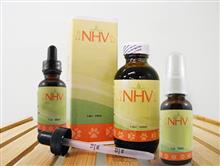
Help prevent heartworms in your pet with this NHV Heartworms Bundle including:
HEARTY HEART
Promotes heart health in pets
Suitable for long-term use
Helps your cat maintain youthful vitality
Promotes overall health
Helps improve energy levels
Improves appetite
Boosts blood flow to the heart
INULIN PK
Strengthens your pet’s immune system
Supports gastrointestinal tract healing
Eliminates roundworms, tapeworms, hookworms, whipworms, and threadworms
Helps repair damage parasites cause
MILK THISTLE
Detoxifies the liver by removing toxins
Improves liver function
Supports regeneration of the liver
Glycerin based and safe for long-term use
HEARTY HEART
Promotes heart health in pets
Suitable for long-term use
Helps your cat maintain youthful vitality
Promotes overall health
Helps improve energy levels
Improves appetite
Boosts blood flow to the heart
INULIN PK
Strengthens your pet’s immune system
Supports gastrointestinal tract healing
Eliminates roundworms, tapeworms, hookworms, whipworms, and threadworms
Helps repair damage parasites cause
MILK THISTLE
Detoxifies the liver by removing toxins
Improves liver function
Supports regeneration of the liver
Glycerin based and safe for long-term use
Only Natural Pet HW Protect Herbal Formula
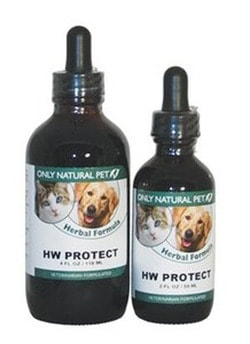
Active Ingredients - Black Walnut (leaf), Epazote (Wormseed) (aerial parts), Ginger (root), Male Fern (root), Oat (seed), Papaya (leaf), Parsley (root), Wormwood (aerial parts)
Other Ingredients - Purified water, Glycerin, Agave (nectar)
Other Ingredients - Purified water, Glycerin, Agave (nectar)
HeartWorm Free (aka HWF)
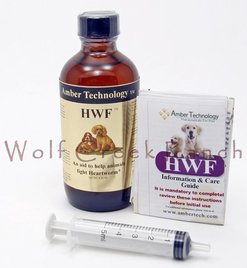
HWF contains: Garlic, black seed, licorice, hawthorn, hops, sorrel, apricot pits, grapefruit seed extract, steak flavoring, alcohol, & filtered water.
Heartworm Nosodes
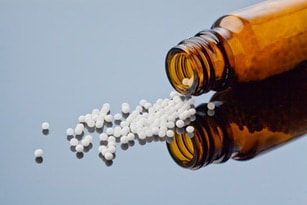
Heartworm 30C can be included in your pets health program and heartworm concerns. For symptoms use 3-5 pellets 2-4 times daily. Heartworm 30C can be used in a maintenance protection protocol of 3-5 pellets weekly.
Another website with heartworm nosodes: https://www.earthsongranch.com/heart-worm-nosode/
Heartworm Kit
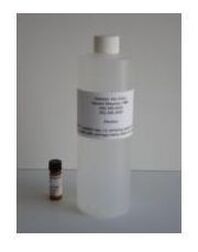
Includes 1 pint of Paratox (a homeopathic anti-parasitic) and 1 dram of Heartworm Nosode.
For those owner's who would rather not use chemicals and would like to prevent a heart worm infestation of their pet, as well as treat their pet in a more natural and homeopathic was this is the kit for you.
If you live in an area that has a high incidence of heartworm in dogs this kit would be used for prevention and for treatment as well. If your dog has had a positive test this kit will also work in treatment for heartworm.
For those owner's who would rather not use chemicals and would like to prevent a heart worm infestation of their pet, as well as treat their pet in a more natural and homeopathic was this is the kit for you.
If you live in an area that has a high incidence of heartworm in dogs this kit would be used for prevention and for treatment as well. If your dog has had a positive test this kit will also work in treatment for heartworm.
Heartworm Support-Chinese Herbs
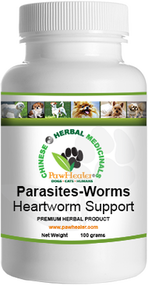
Ingredients:
bing lang (Semen Arecae)
dan shen (Salvia Miltiorrhiza)
qing hao (Herba Artemisiae Anuae)
ze xie (Alismatis Rhizoma)
shi liu pi (Granati Pericarpium)
xing ren (Semen Armeniacae)
wu mei (Mume Fructus)
chuan lian zi (Fructus Toosendan)
gui zhi (Cinnamomi Cassiae Ramulus)
hong hua (Carthamus Tinctorius)
bing lang (Semen Arecae)
dan shen (Salvia Miltiorrhiza)
qing hao (Herba Artemisiae Anuae)
ze xie (Alismatis Rhizoma)
shi liu pi (Granati Pericarpium)
xing ren (Semen Armeniacae)
wu mei (Mume Fructus)
chuan lian zi (Fructus Toosendan)
gui zhi (Cinnamomi Cassiae Ramulus)
hong hua (Carthamus Tinctorius)
**More products will be added as they are discovered



